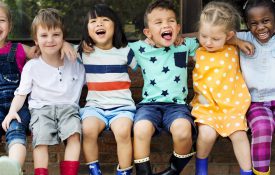
APS offers some scientific insights into family dynamics.
Podcast: When kids witness their parents engaging in warm and positive interactions, it could have a positive effect on the children themselves. Hear from Brian Don, who discusses his new theory on the topic, what it could mean for future research, and much more. Visit Page

Many parents ponder why one of their children seems more emotionally troubled than the others. A new study in the United Kingdom reveals a possible basis for those differences. Visit Page

Podcast: How do parents adjust their behavior in the context of neurodiversity? Alexandra Sullivan (University of California, San Francisco) and APS's Özge G. Fischer-Baum discuss parenting strategies with an inclusive approach. Visit Page
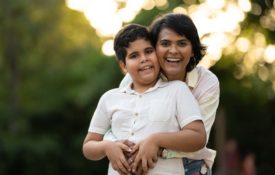
Parents and other guardians lie to their children for a host of reasons, research confirms. Students have an opportunity to explore why parents evade the truth. Visit Page

Podcast: What methods effectively alleviate children's anxiety? How do parents influence the treatment process? Can parents positively affect the treatment outcomes? Under the Cortex explores. Visit Page

Podcast: In this episode, psychological scientists Norman Li and Kenneth Tan illuminate how the mutual creation and enjoyment of humor serves as crucial markers of relationship well-being. Visit Page

From informal family caregivers at home to trained professionals in health care facilities, how caregivers act and behave can greatly impact the outcomes of those they care for. Visit Page

Researchers have developed a method to experimentally evaluate how parents use what they know about their children's language when they talk to them. Visit Page
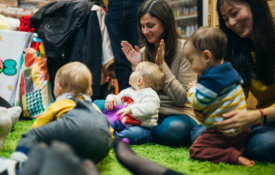
A new study finds marriage to a spouse who grew up exposed to parental alcohol misuse increases a person’s likelihood of developing a drinking problem. [August 20, 2020] Visit Page

Unaddressed mental health concerns can echo through the generations of a family, but the exact path depression, anxiety, and other disorders may take through the branches of a family tree isn’t always straightforward. Visit Page

Informal social support is essential for helping employees maintain work-family balance without facing professional consequences. Visit Page
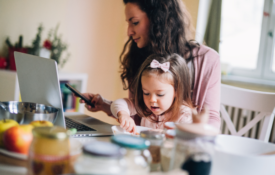
Evolutionary psychologists have focused much their research on the human pursuit of love and sex, but a global study shows that people's strongest motivations lie elsewhere. Visit Page

Science examines how physical surroundings affect children’s development. Visit Page
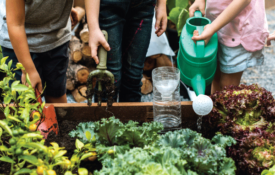
The happier we feel, the less likely we are to experience memory decline. Visit Page

Children whose parents considered them to be ‘overweight’ gained more weight over the following decade compared with those whose parents thought they were ‘normal weight,’ according to data from two nationally representative studies. Visit Page

The reason people achieve a certain level of education may depend partly on genetic influences mediated by the home environment. Visit Page

Early deprivation experiences, such as parental neglect, appear to be more closely associated with cognitive and emotional functioning in adolescence than early threat experiences, such as exposure to abuse. Visit Page
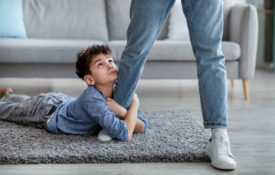
Beliefs about how animals should be treated are likely socially acquired. Visit Page

Reduced access to rewards may influence brain development, contributing to the increased prevalence of mental health disorders in children living in economically impoverished environments. Visit Page

Individuals who report more feelings of vulnerability may have better physical health. Visit Page

Psychological science sheds light on how we can make our holidays tastier, friendlier, less lonely, and maybe even healthier. Visit Page

Findings from a risk-taking game show that, when forced to make a decision that benefits either a parent or a close friend, young adults are more likely to choose the parent. Visit Page

Supportive parenting can help protect adolescents, and their brains, against the long-lasting impact of growing up in poverty. Visit Page

Longitudinal data suggest growing up in a warm family environment in childhood is associated with feeling more secure in romantic relationships in one’s 80s. Visit Page

Riana Elyse Anderson, Ed O’Brien, and Hengchen Dai discuss how to study and improve the well-being and functioning of Black families, the importance of time in how people perceive progress, and how fresh starts can feel motivating. Visit Page

With mixed findings and multiple plausible explanations, the question remains: How does birth order relate to personality? Visit Page

The word “parenting” did not enter the popular lexicon until the 1950s, and when it did, said APS Fellow Alison Gopnik, it added fuel to a goal-centered perspective of how children should be raised that Visit Page
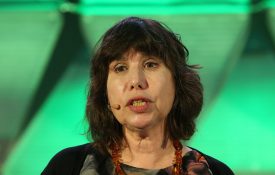
Media use before bedtime translates to less sleep for some, depending on level of self regulation. Visit Page

African American adolescents who experience high levels of racial discrimination show cellular wear and tear, according to new research published in Psychological Science. Visit Page

Psychological scientists describe the abundant evidence demonstrating the negative impact of separating parents and children. Visit Page
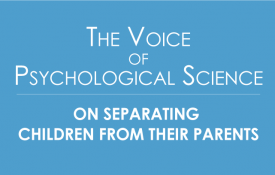
Accumulating evidence suggests that providing social support for others can benefit caregivers, boosting feelings of social connection. Visit Page

Although some people may be genetically predisposed to divorce, that doesn’t mean it’s written in the stars. An adoption study of nearly 20,000 Swedish participants in Psychological Science suggests, however, that when it comes to Visit Page

The intense exhaustion of parental burnout can lead parents to feel detached from their children and unsure of their parenting abilities. Visit Page

Exploring this claim provides an opportunity to discuss issues involving nature and nurture in developmental and personality psychology. Visit Page

Children as young as 4 years old may reap better health from altruistic giving, a behavior that tends to be less common among kids from high-income families. Visit Page
